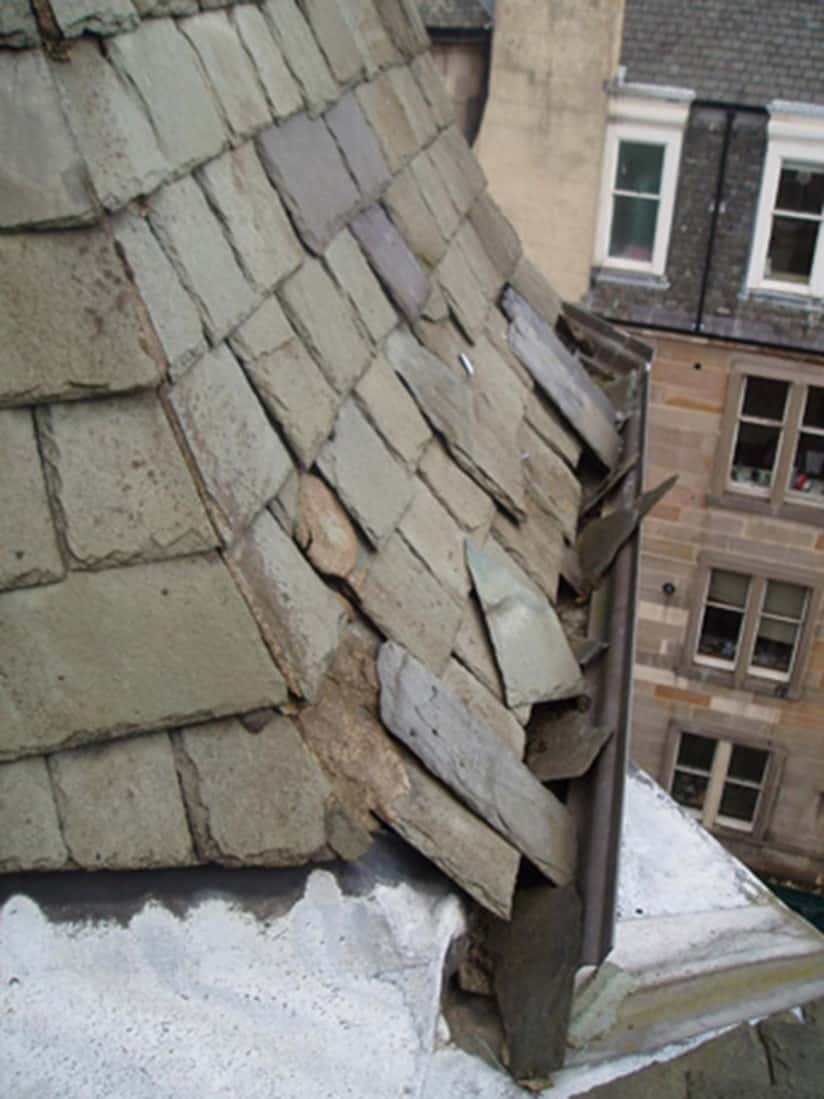Tenement repairs cover a huge range of topics, and it can be a complicated and scary subject to delve into… made more prominent by the Scottish Parliamentary’s Working Group who have submitted proposals to Parliament to have the following issues considered under law:
- Include tenement condition as part of improvements to home reports and develop a form and framework for a tenement condition report
- Home owners to set out and form their own Owners Associations
- As is the case in other countries, homeowners are to create a ‘reserve fund’ and joint bank account whereby large repairs or regular maintenance can be saved up for jointly
It is in every property owner’s interest that their property be kept in good condition with arrangements in place to ensure that their building is well managed and maintained. Buildings should be brought to a standard where they can be easily and cheaply maintained through a regular and low cost programme of works, but how can landlords ensure this happens in a property they own with other multiple ownerships? Here are 3 things to think about…
How does a landlord organise a common repair?
The basic responsibility for carrying out the work needed on any private homes individually or jointly rests with the property owners collectively. There are a growing number of organisations which can provide owners with assistance with regards to starting the repair and maintenance process. In the majority of cases the owners of the property collectively have no idea of the condition of their building until water ingress or a stone fall occurs, which then forces them to take action. This is where tenement conditional reports, improving the existing home reports, would prove so valuable.

Engaging the services of a knowledgeable professional (such as a Conservation Accredited Surveyor or Architect) at the start of the process would assist owners and landlords greatly. The owners would then be guided through the process and of course, the condition of their tenement block could be determined and then an action plan put in place. A tenement conditional survey is a valuable report to have and it acts as a good starting base to determine what works are required to be carried out.
How to go about getting a tenement condition survey carried out and what happens if some owners refuse to help with the repair?
Your professional advisor can prepare a report for you, or you can use Edinburgh Councils valuable shared repair service, which offers a wealth of knowledge and advice, and also a missing shares service. If you are having problems locating a neighbour or they do not wish to contribute, CEC can assist with this problem.
What’s the best way to find out what a property owner is accountable for in areas of buildings where there is common ownership?
The Tenements (Scotland) Act 2004 provides a duty on all owners to maintain any part of the building that provides “support and shelter” for any other part. The Act provides that this duty may be enforced by any other owner who is, or would be, directly affected by any breach. If there is nothing in the title deeds or if they are unclear, then the Tenement Management Scheme provides a structure for the maintenance and management of a tenement. The Tenement Management Scheme includes provision for majority decision making on a range of issues, including tenement repairs. In many cases the owners agree what their shares are in advance of any works being carried out. This can be based on floor area or an equal shared basis. Once an agreement is in place this can form part of the Owners Association constitution.
Tenement repairs are so easy to ignore until a problem comes your way. A large proportion of the buildings throughout Edinburgh are in a state of poor repair due to general weathering and maintenance neglect. Good intentioned, yet inappropriate, cement repairs in the past have also caused further deterioration. As a result, many of the properties are now in a need of upgrade or repair. Water ingress issues will in time lead to larger scale required repairs such as rot. Stone deterioration/chimney deterioration will in time lead to stone falls putting the general public and occupants in danger.
Edinburgh Council is able to issue ‘Building Defect Notification’ to tenements that are showing signs of health and safety concerns, however, there is no need to let your property get to that stage. Face the problem, get your neighbours together, appoint a professional advisor and evaluate the condition of your property. Deal with these issues sooner rather than later and before they become law. In the long term this strategy will help you rent your property, sell it or simply keep it in good condition with minimal costs.


